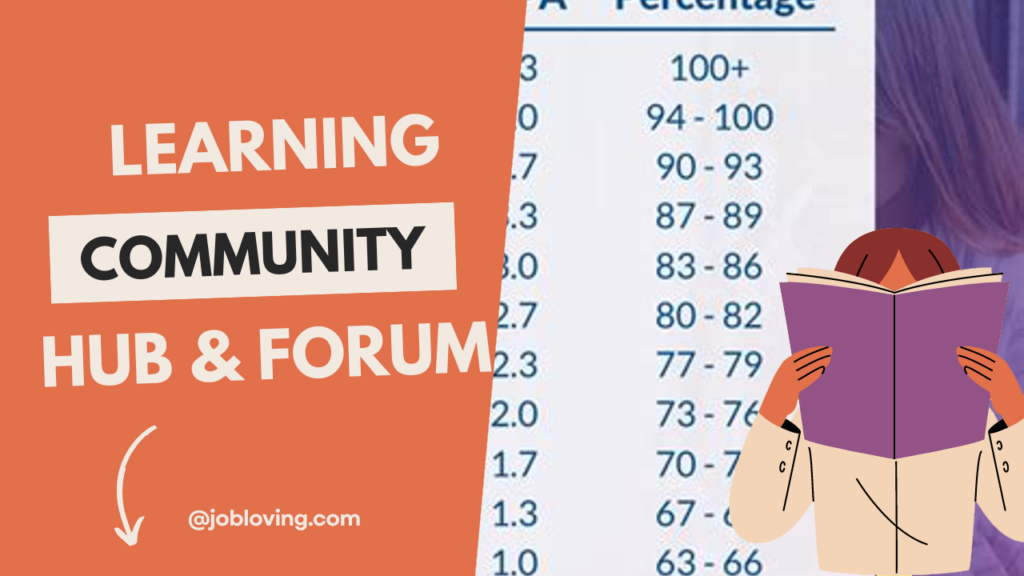Ever wonder how those summer classes can affect your GPA? Picture this: you’re lounging under the sun but also juggling the joys of learning. How does that all play out when report card time rolls around? Let’s dive into the intriguing world of summer class GPAs and find out what really counts!
The Short Answer: Your school’s policy is key!
Most high schools will include grades from accredited summer courses in the calculation of your GPA. This means if you take summer classes offered by your high school or an accredited institution, the grades should be factored in.
When you’re enjoying those carefree summer days while earning credits, it’s essential to know how your hard work translates into GPA points. Typically, schools have specific policies about how they treat grades from summer classes. If your school offers courses and those classes are accredited—meaning they meet certain educational standards—you’re likely in the clear for including those grades in your cumulative GPA. So, not only does summer learning give you an edge academically, but it can also smooth out any bumps in your GPA road.
Moreover, some schools may have specific guidelines about how these summer courses are weighted. For example, honors or advanced placement classes may carry more weight, potentially boosting your GPA even further. It’s always a great idea to check with your school counselor or academic advisor to get the lowdown on the policies affecting your GPA. Knowledge is power, after all!
In summary, make those sunny days count—your future self will thank you as your grades reflect the effort you put in over the summer! If you’re looking to level up your academic game and need more resources, don’t hesitate to join the JobLoving community. Have questions? We’re here to help!
Key takeaways about how do summer class gpas work
Impact of Summer Classes on GPA
- Taking summer classes can significantly increase your chances of raising your overall GPA effectively.
- More classes taken in summer lessen the impact of individual grades on overall GPA calculations.
- Taking summer courses can effectively boost GPA by increasing both quantity and quality of grades.
- A single summer course can significantly raise GPA, depending on the grades received in prior courses.
- Summer classes contribute to GPA calculations similarly to regular semester courses at most institutions.
- GPA calculations include summer classes, affecting eligibility for honors, scholarships, and academic distinctions.
- Consistent summer course enrollment can lead to a more favorable cumulative GPA over time.
- Retaking courses in summer can improve GPA, especially if previous grades were lower than desired.
- Performance in summer classes can influence future academic opportunities and overall educational trajectory.
- The decision to take summer classes should align with individual needs and future educational goals.
Structure and Environment of Summer Classes
- Summer classes are full semester courses, despite running over a shorter timeframe than traditional semesters.
- Smaller class sizes in summer classes can lead to more personalized instruction and better engagement.
- A more relaxed atmosphere in summer classes can foster increased confidence and a positive school attitude.
- The focused approach of summer classes may lead to a deeper understanding of challenging subjects.
- Summer classes often allow students to focus on fewer subjects, enhancing comprehension and performance.
- The condensed nature of summer classes requires students to adapt quickly to a faster-paced curriculum.
- A non-traditional learning environment can enhance the learning experience for high school students.
- Each summer course receives a letter grade, which is converted to grade points for GPA.
- Total grade points are calculated by multiplying course grade points by the course’s credit hours.
- GPA is calculated by dividing total grade points by the total credit hours taken overall.
Strategies for Summer Class Enrollment
- Focusing on one subject during summer allows for better comprehension and improved grades in that class.
- Engaging in summer classes may help students stay on track toward timely high school graduation.
- High school students can use summer classes to remediate past academic struggles and improve GPA.
- Taking summer classes can help lighten course loads in future semesters for high school students.
- Students may risk missing out on summer jobs or travel opportunities by enrolling in summer classes.
- Students should consult academic advisors for specific guidelines on summer courses and GPA implications.
- Strategic enrollment in summer courses can mitigate GPA declines from challenging regular semester classes.
- Awareness of summer class GPA implications is crucial for maintaining satisfactory academic progress.
- Summer classes can offer a unique opportunity to explore subjects not available during the regular school year.
- Summer classes can provide a competitive edge in college admissions through enhanced academic performance.
Institutional Variations and Policies
- Different institutions may have unique policies regarding summer class weight and GPA calculation methods.
- Institutions may vary in how they treat grades from summer courses compared to regular terms.
- GPA calculations during summer sessions can differ based on institutional policies and grading systems.
- Summer classes are reflected on transcripts, impacting overall GPA and academic standing significantly.
- The focused approach of summer classes may lead students to improve their study habits and academic discipline overall.
- Students who take summer classes may graduate early by earning additional credits during the summer.
- A strategic approach to summer courses can create a positive feedback loop for continuous academic improvement.
- Understanding how summer classes affect GPA helps students make informed decisions about course loads.
- Classes taken over the summer may allow for greater flexibility to balance education with other commitments.
- Performance in summer classes can set a precedent for students’ attitudes and efforts in subsequent semesters.

